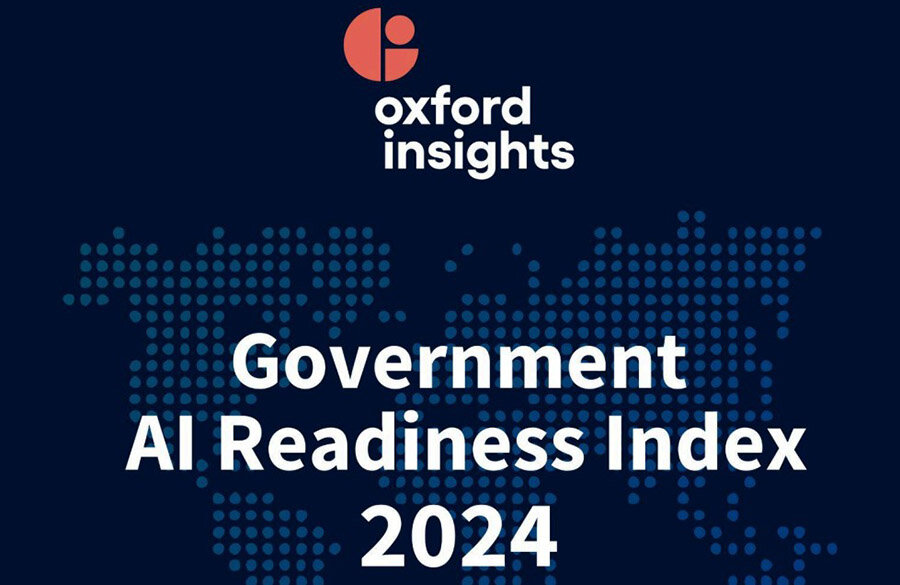AI Readiness Index 2024: Global Leaders, Laggards, and Trends

Artificial Intelligence is no longer seen as an exotic innovation – it has become a key instrument in transforming public institutions. This is confirmed by the Government AI Readiness Index 2024, published by Oxford Insights. The report covers 188 countries and evaluates their capabilities to integrate AI into public administration.
The analysis is based on 40 indicators grouped into three core pillars: Government, Technology Sector, and Data & Infrastructure. The overall score reflects the maturity of institutions, digital preparedness, and potential to embed AI in state services and decision-making.
Global Leaders in AI Readiness
The top ten in the AI Readiness Index 2024 are the United States, Singapore, South Korea, France, the UK, Canada, the Netherlands, Germany, Finland, and Australia. These countries demonstrate the highest levels of AI maturity across all dimensions, marked by strong strategies, significant investments, advanced regulations, and powerful digital infrastructure.
The United States remains the global leader, mainly due to its powerful tech ecosystem. However, Singapore leads in “Government” and “Data & Infrastructure”, showcasing its excellence in strategic execution.
South Korea demonstrates balanced growth across AI industry and public services, especially in cybersecurity and healthcare.
France and the UK focus on ethics and legal regulation, while Canada emphasizes open data and partnerships.
Germany and the Netherlands lead in transparency and governance, while Finland focuses on digital education, and Australia supports regional innovation ecosystems.
Other Notable Performers
Norway, Japan, and the UAE follow closely in ranks 11–13, with high performance across categories.
Estonia (21st) stands out for digital governance.
China (23rd) and Russia (39th) show high tech capacity but challenges in transparency and regulation.
India ranks 46th, Turkey 53rd, and Ukraine 54th.
At the bottom of the index are countries facing extreme instability or lacking basic digital infrastructure: Yemen, Afghanistan, Syria, South Sudan, and others.
Regional Rankings
North America leads globally with an average score of 82.6.
Western Europe comes second, driven by strong legal and ethical standards.
East Asia (Singapore, South Korea, Japan) ranks third, excelling in government execution and data systems.
Eastern Europe shows notable progress, led by Estonia, Ukraine, and Moldova.
Middle East & North Africa invest heavily in national AI strategies, with the UAE and Saudi Arabia among top performers.
Latin America is led by Brazil, Chile, and Uruguay, all of which have introduced national AI policies and regional cooperation frameworks.
Sub-Saharan Africa lags but countries like South Africa, Kenya, and Rwanda are improving digital services and education.
Key Trends in 2024
National AI Strategies: 12 new countries introduced national strategies, including Ethiopia, Ghana, Nigeria, Sri Lanka, and Uzbekistan.
International Cooperation: The first legally binding international treaty on AI was signed in 2024, alongside regional charters like the Montevideo Declaration and the Pan-African AI Strategy.
Innovative Tools: Estonia’s Bürokratt and Uzbekistan’s legal chatbot on Lex.uz simplify citizen interaction with the government.
Emerging Champions: Ukraine, Moldova, Costa Rica, and Uzbekistan scored maximum in the “Vision” component and exceeded global averages in ethics, governance, and data access.
The report emphasizes that technological prowess alone is insufficient. True AI success requires governance reform, digital literacy, ethical frameworks, and institutional transparency.








